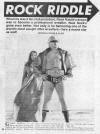|
|
|
Scheduled Publication Date: April 5, 2007 |
Click on any of the smaller photos to
enlarge |
|

 I
was a keynote speaker for the highly acclaimed “Accelerated Success
Seminars for Actors” in Studio City, California. I donate my time
to speak at these events, as do a few dozen additional award-winning
producers, directors, and casting directors. I utilize my 100,000+
hours of professional experience in the entertainment industry (as a
former Screen Actors Guild-franchised talent agent and agency
co-owner, personal manager, producer, casting director, stunt
person, talk show host, film and television actor, and marketing
expert) to assist serious film and television actors in their quest
for success in the industry. The final thirty minutes of these
three-hour events consists of a question-and-answer session. There
are usually people in the audience who know my wrestling
background; therefore I am often asked a wrestling question or two.
Such was the case at a recent seminar event.
I
was a keynote speaker for the highly acclaimed “Accelerated Success
Seminars for Actors” in Studio City, California. I donate my time
to speak at these events, as do a few dozen additional award-winning
producers, directors, and casting directors. I utilize my 100,000+
hours of professional experience in the entertainment industry (as a
former Screen Actors Guild-franchised talent agent and agency
co-owner, personal manager, producer, casting director, stunt
person, talk show host, film and television actor, and marketing
expert) to assist serious film and television actors in their quest
for success in the industry. The final thirty minutes of these
three-hour events consists of a question-and-answer session. There
are usually people in the audience who know my wrestling
background; therefore I am often asked a wrestling question or two.
Such was the case at a recent seminar event.
The question concerned my old friend Professor Toru Tanaka. “Did
Tanaka ever defeat Bruno Sammartino?” “Yes,” I answered, “and he
did so on more than one occasion.” “He worked a lot in film and
television, didn’t he?” another audience member asked. “Yes,” I
responded. “He did dozens of feature films and television shows. He
made a very nice living as an actor.” Another person, with a
puzzled look on his face, asked, “Who is Toru Tanaka?” It was
obvious that about half of the audience was clueless as to the
identity of the man we were discussing. “How in the world do I
describe Toru Tanaka to people who don’t know who he is?” I
asked myself. I thought for a moment before I spoke. “Picture
someone just a hair over six feet tall, weighing about 325 pounds …”
I paused for dramatic effect. “And, this man is almost pure
muscle. He has a ‘V’ shape about him, a very short crew cut and a
goatee, and his face looks somewhat like a bulldog -- a tenth-degree
black belt martial arts master who was one of the toughest people on
the planet – possibly THE toughest when he was at his peak.”
Several of the audience members knew to whom I was referring and
several were still in the dark. “Think of Harold Sakata,” I
suggested, “the actor who played ‘Odd Job’ in the old James Bond
movie, ‘Goldfinger.’ Now, make him a little uglier, a little
nastier and about thirty percent larger. That’s Professor Toru
Tanaka.”
“Tanaka was a great wrestler, but he was never really an actor,” an
audience member offered. “So, how is it that he was so successful
in the film business? How did he get started?” I couldn’t help but smile. Attendee Bill Pappas, an
actor and wrestling fan, answered the question before I could
respond. “Rock got him in.” “Is that true?” The audience member
asked. “Yes,” I responded. “I brought Tanaka into the film and
television business.” I used the opportunity to continue teaching
the "actor" audience. “We all know that the film and television
business is not based on talent. There are dozens of actors
starring on television series and doing major roles in feature films
whose talent could best be described as mediocre.” I looked at each
individual member or the audience. I was finally beginning to get
through to some of the more stubborn attendees. “And, dozens of the
most brilliantly talented actors alive are giving up every single
day,” I continued. “Most of you in this room are considerably more
talented than many of the actors who are doing starring roles now.
So, if this industry were based on talent, how could that be true?
Wouldn’t most of you be working if talent were the deciding factor?
So, what do those not-terribly-talented actors who are doing
co-starring and starring roles have in common?” I could see the
crowd thinking. “They all approach the business as a business?” one
of the actors submitted. “Yes!” I said. “Very good, and what
else?” “They all network with industry professionals, and they
promote and market themselves,” was the next answer from a fairly
well-known co-star-status actress. I smiled and said, “You’ve been
here before … and, of course, you’re absolutely right.”
started?” I couldn’t help but smile. Attendee Bill Pappas, an
actor and wrestling fan, answered the question before I could
respond. “Rock got him in.” “Is that true?” The audience member
asked. “Yes,” I responded. “I brought Tanaka into the film and
television business.” I used the opportunity to continue teaching
the "actor" audience. “We all know that the film and television
business is not based on talent. There are dozens of actors
starring on television series and doing major roles in feature films
whose talent could best be described as mediocre.” I looked at each
individual member or the audience. I was finally beginning to get
through to some of the more stubborn attendees. “And, dozens of the
most brilliantly talented actors alive are giving up every single
day,” I continued. “Most of you in this room are considerably more
talented than many of the actors who are doing starring roles now.
So, if this industry were based on talent, how could that be true?
Wouldn’t most of you be working if talent were the deciding factor?
So, what do those not-terribly-talented actors who are doing
co-starring and starring roles have in common?” I could see the
crowd thinking. “They all approach the business as a business?” one
of the actors submitted. “Yes!” I said. “Very good, and what
else?” “They all network with industry professionals, and they
promote and market themselves,” was the next answer from a fairly
well-known co-star-status actress. I smiled and said, “You’ve been
here before … and, of course, you’re absolutely right.”
 I
went on to discuss Toru Tanaka and his rise to “steadily working,
financially secure actor” status. I ended my Tanaka example with
these words: “If you want to know more about Professor Toru Tanaka,
read my wrestling column. I’ll do a couple of stories on him. I
knew the man very well. We were in the ring together many times, we
traveled together, we spent countless hours together in dressing
rooms in arenas all over the country, and he was even my house guest
for a couple of months. In my column, I’ll share information about
him that only a very few people know. I’ll include inside
information on Tanaka-san that has never been printed before. It
will be blatantly and even brutally honest, just like these acting
seminars. Now, who has the next question?”
I
went on to discuss Toru Tanaka and his rise to “steadily working,
financially secure actor” status. I ended my Tanaka example with
these words: “If you want to know more about Professor Toru Tanaka,
read my wrestling column. I’ll do a couple of stories on him. I
knew the man very well. We were in the ring together many times, we
traveled together, we spent countless hours together in dressing
rooms in arenas all over the country, and he was even my house guest
for a couple of months. In my column, I’ll share information about
him that only a very few people know. I’ll include inside
information on Tanaka-san that has never been printed before. It
will be blatantly and even brutally honest, just like these acting
seminars. Now, who has the next question?”
Flash back to late 1980: I received a phone call from my longtime
friend, Toru Tanaka. “I’m calling you from Puerto Rico. I’ve been
wrestling here,” Tanaka said. We talked for a minute or two, and
then Tanaka let me know the reason for his call. “Can you get me
into the movies?” he asked. “I’m tired of wrestling and traveling
all the time, and I know you have connections. I’m thinking of
coming to Los Angeles and getting into the film business. Will you
help me?” I thought for a few moments. I was used to getting these
types of calls from actors, but this was from a member of my
close-knit wrestling family. Normally I would attempt to talk
anyone out of moving to Hollywood with the hope of making a living
in the entertainment industry. With Tanaka, however, it was
different. I knew that he was not a trained actor, but I also knew
he had a unique look, a great personality, and the tenacity
necessary to achieve any goal. “Tanaka-san,” I answered, “You know
it could take months or years to achieve success in this business.
How are you fixed financially?” He let me know that he was okay but
would need additional income within a relatively short period of
months. We talked for quite a while. I knew that he had received
many injuries in his wrestling career. I could tell that he was
tired and hurting. The relentless wrestling
 grind
had obviously taken its toll over the past dozen-plus years, and I
knew the good professor was serious.
grind
had obviously taken its toll over the past dozen-plus years, and I
knew the good professor was serious.
“Sure, Tanaka-san. I have two apartments in addition to my office
suite. I’m not using one of the apartments. You can stay there for
a few months to begin with. That should save you some money.” He
was grateful. “It will be me and my wife,” Tanaka added. “That’s
fine,” I said. “It’s only a one-bedroom apartment, but it’s pretty
big. It has a large television and cable TV. There’s even a
24-hour Japanese channel.” Tanaka was very humble and respectful.
“You don’t worry, Rock,” the big man said, “I will make you proud, and I will repay
you many times over for everything.” I smiled. I knew he would.
Rock,” the big man said, “I will make you proud, and I will repay
you many times over for everything.” I smiled. I knew he would.
Next week, I’ll share with you Tanaka’s arrival with his
younger-than-expected “wife” (What happened to the other one; was he
actually married to two at the same time?) I’ll take you with us
into Tanaka’s first film interview; then into the conference room
with Richard Roundtree, Christopher Lee, Chuck Norris, producer
Frank Capra, Jr., director Steve Carver, Tanaka, and me. We’ll go
onto the set of his first feature film, “An Eye for An Eye.” I’ll
share with you the private “Accelerated Self Defense School” Tanaka
and I started – a large dojo with no windows -- and introduce you to
our celebrity clients/students. And, LOTS more. Until next week,
keep those e-mails coming.
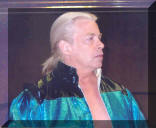

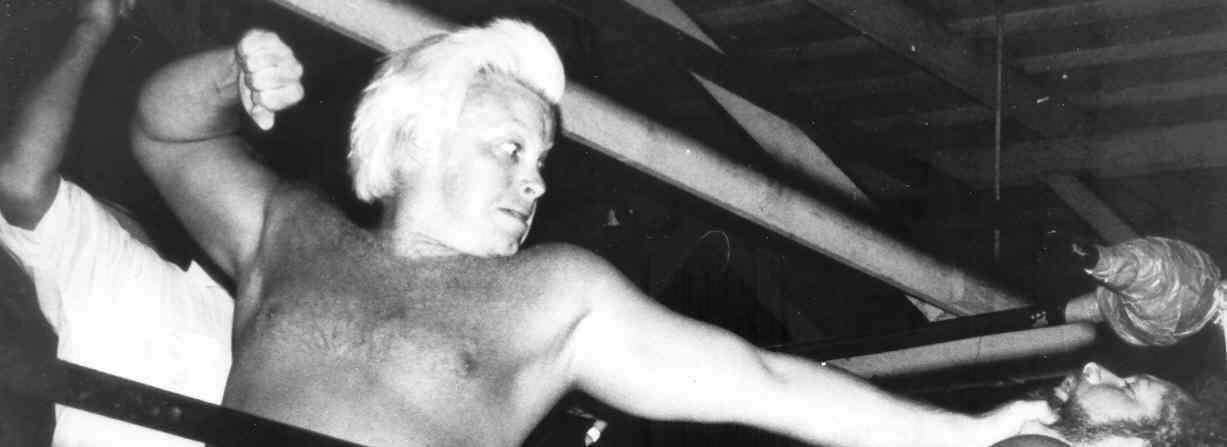


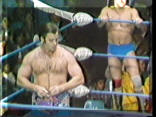
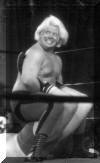

 I
was a keynote speaker for the highly acclaimed “Accelerated Success
Seminars for Actors” in Studio City, California. I donate my time
to speak at these events, as do a few dozen additional award-winning
producers, directors, and casting directors. I utilize my 100,000+
hours of professional experience in the entertainment industry (as a
former Screen Actors Guild-franchised talent agent and agency
co-owner, personal manager, producer, casting director, stunt
person, talk show host, film and television actor, and marketing
expert) to assist serious film and television actors in their quest
for success in the industry. The final thirty minutes of these
three-hour events consists of a question-and-answer session. There
are usually people in the audience who know my wrestling
background; therefore I am often asked a wrestling question or two.
Such was the case at a recent seminar event.
I
was a keynote speaker for the highly acclaimed “Accelerated Success
Seminars for Actors” in Studio City, California. I donate my time
to speak at these events, as do a few dozen additional award-winning
producers, directors, and casting directors. I utilize my 100,000+
hours of professional experience in the entertainment industry (as a
former Screen Actors Guild-franchised talent agent and agency
co-owner, personal manager, producer, casting director, stunt
person, talk show host, film and television actor, and marketing
expert) to assist serious film and television actors in their quest
for success in the industry. The final thirty minutes of these
three-hour events consists of a question-and-answer session. There
are usually people in the audience who know my wrestling
background; therefore I am often asked a wrestling question or two.
Such was the case at a recent seminar event.




